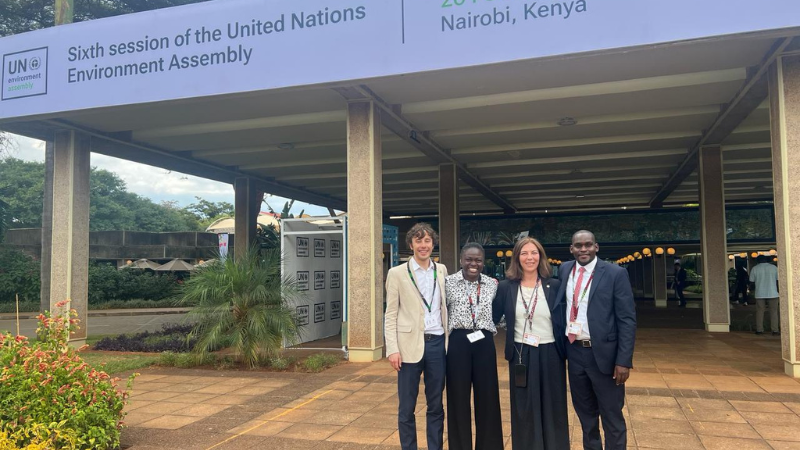The 6th Session of the United Nations Environment Assembly (UNEA-6), which convened from 26 February to 1 March 2024 in Nairobi, Kenya, represented an opportunity for the World Farmers’ Organisation (WFO) to step up its engagement in the global conversation on climate, nature and biodiversity and strive for a greater representation of farmers’ voices in the multilateral environmental agenda.
The United Nations Environment Assembly (UNEA), with representatives from 193 Member States, is the world’s highest-level decision-making body for matters related to the environment. It meets every two years to set the global environmental agenda, provide overarching policy guidance, and define policy responses to address emerging environmental challenges.
UNEA-6 saw for the first time the participation of a WFO delegation in the UNEA process fulfilling a mandate provided by the 2023 WFO General Assembly. On that occasion, the members approved the workplan of the recently established WFO WG on Nature and Biodiversity which included the development of a first-ever WFO position on the Conservation and Sustainable Use of Biodiversity and Natural Resources (currently undergoing member-wide consultations) and an initial approach to relevant international policy processes to gauge opportunities for farmers engagement.
The WFO delegation to UNEA-6 was composed by Ms Luisa Volpe, Advocacy, Policy and Partnerships Practice Leader, and Mr Francesco Brusaporco, the officer in charge of climate, nature and biodiversity, on behalf of the WFO International Secretariat; as well as farmers and farmer leaders from the Kenyan National Farmers’ Federation (KENAFF), a WFO member organisation, namely: Mr Daniel Mwendah M’Mailutha, KENAFF CEO, Ms Loureen Akinyi Awuor, Head of Partnerships & Programs, and Mr Kemei Mark Kiprono, a young farmers who attended the WFO Gymnasium Programme.
The conference, which concluded with the adoption of a Ministerial Declaration, 2 Decisions and 15 Resolutions, some of which highly relevant for the agricultural sector, saw the participation of the WFO delegates in official sessions, bilateral meetings and high level events. Throughout the Conference, the WFO delegation emphasized the importance to ensure that the implementation of global principles at the national level is informed by the experience and needs of farmers who are active in the field, thus highlighting the key role played by the National Farmers’ Organisation represented by the WFO. Furthermore, they engaged with other organisations representing farmers within the UNEP Farmers’ Major Group to adopt a more effective approach to represent farmers at UNEA and ensure coordination with other farmers’ representatives across the relevant policy processes.
Finally, UNEA-6 presented an opportunity for the WFO to establish new contacts and nurture its relationship with UNEP and other organisations interested in elevating the voice of farmers and bring their interests back at the centre of the conversation, strengthening their capacity to continue working with nature and contribute effectively to more sustainable agriculture and resilient food systems.
